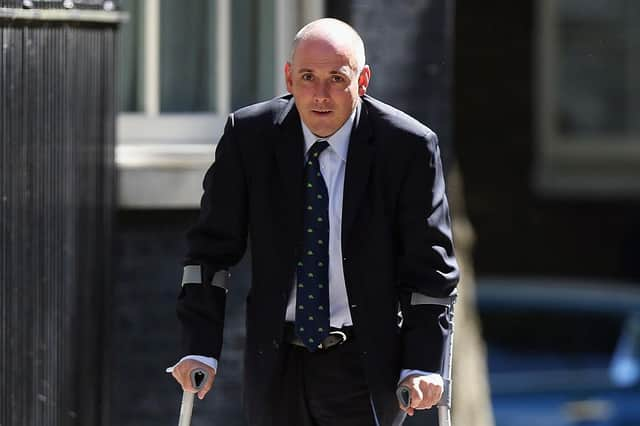What is white privilege? Meaning of term explained as MPs criticise its use in schools in England


Tory MPs have said that use of terminology like “white privilege” may have contributed towards a “systemic neglect” of white working-class pupils who need support.
The Commons Education Select Committee said schools should consider whether the promotion of such “politically controversial” terminology is consistent with their duties under the Equality Act 2010.
Advertisement
Hide AdAdvertisement
Hide AdDisadvantaged white pupils have been badly let down by “muddled” policy thinking and the Department for Education (DfE) has failed to acknowledge the extent of the problem, the report said.
Members of the committee have been accused of stoking a culture war with Fleur Anderson, Labour MP for Putney, Southfields and Roehampton and a committee member, saying: “I’m concerned this report will be used to fight a divisive culture war instead of address chronic under-funding of early years, family hubs, careers advice and mentoring, and youth services.”
But what does the term mean?
What are the origins of white privilege and what does it mean?
Kehinde Andrews, a professor of black studies at Birmingham City University, and founder of the Organisation of Black Unity, believes the term was coined by the famous black civil rights activist William Du Bois in the 1930s.
Advertisement
Hide AdAdvertisement
Hide AdDu Bois used the term to try and explain how white workers in America benefited from the colour of their skin and racial segregation.
The term “white privilege” came to further prominence after anti-racism activist and writer Peggy McIntosh published her groundbreaking essay, “White Privilege: Unpacking the Invisible Knapsack” in 1988.
In the essay, McIntosh shared her experience as a white woman, and her growing awareness of disparities between the races and systemic racism.
She writes, “As a white person, I realised I had been taught about racism as something that puts others at a disadvantage, but had been taught not to see one of its corollary aspects, white privilege, which puts me at an advantage.
Advertisement
Hide AdAdvertisement
Hide Ad"I was taught to see racism only in individual acts of meanness, not in invisible systems conferring dominance on my group.
“I have come to see white privilege as an invisible package of unearned assets that I can count on cashing in each day, but about which I was "meant" to remain oblivious. White privilege is like an invisible weightless knapsack of special provisions, maps, passports, codebooks, visas, clothes, tools, and blank checks.”
The essay was celebrated for its clear and tangible examples of white privilege, and included 46 examples of this, such as the following:
1. I can turn on the television or open the front page of the paper and see people of my race widely represented.
Advertisement
Hide AdAdvertisement
Hide Ad2. I am never asked to speak for all the people of my racial group.
3. I can, if I wish, arrange to be in the company of people of my race most of the time.
Why is the term criticised by some?
While many celebrate the phrase for its succinct ability to point out the reality of racial inequalities, the word has also been rather polarising.
A main criticism is aimed at the use of the word ‘privilege’ which has caused some to misinterpret the term as an unfair claim that all white people are well-off, and have lives free from struggle.
Advertisement
Hide AdAdvertisement
Hide AdThe Commons Education Select Committee report suggested that the term may have contributed towards a “systemic neglect” of white working-class pupils who need support.
However, Du Bois and McIntosh did not use the term to claim all white people have easy lives free from struggle.
Prominent Black Lives Matter activist Emmanuel Acho, a former NFL player, and current analyst for Fox Sports 1, clarified the meaning of the term in the wake of the 2020 Black Lives Matter protests.
He said: “This [definition] resonated with the most people. White privilege is not saying that as a white person your life hasn't been hard. White privilege is simply saying your skin colour hasn't been a contributing factor”.
Advertisement
Hide AdAdvertisement
Hide AdHe revealed his own personal experiences as a black man, and explained that, unlike black people, white people do not have to be acutely aware of their skin colour in their everyday lives.
“As a black man living in an affluent neighbourhood in Austin Texas, and when I pull up to the mailbox I sit in my car if I see a white woman walking up, because I don't want her to perceive me as a threat.
“I have to live my life calculated. White people get to live their life unconsciously. So, white privilege is also that ability to live your life unconsciously.”
